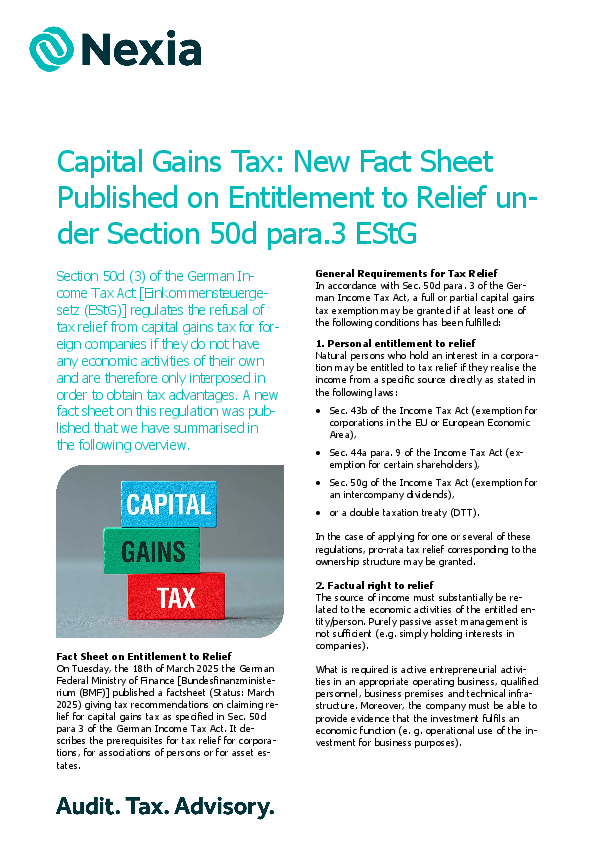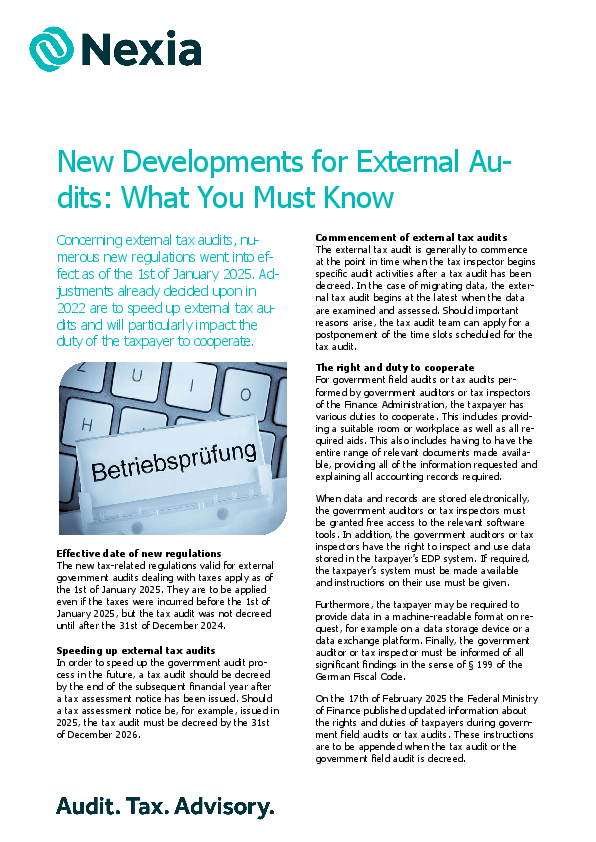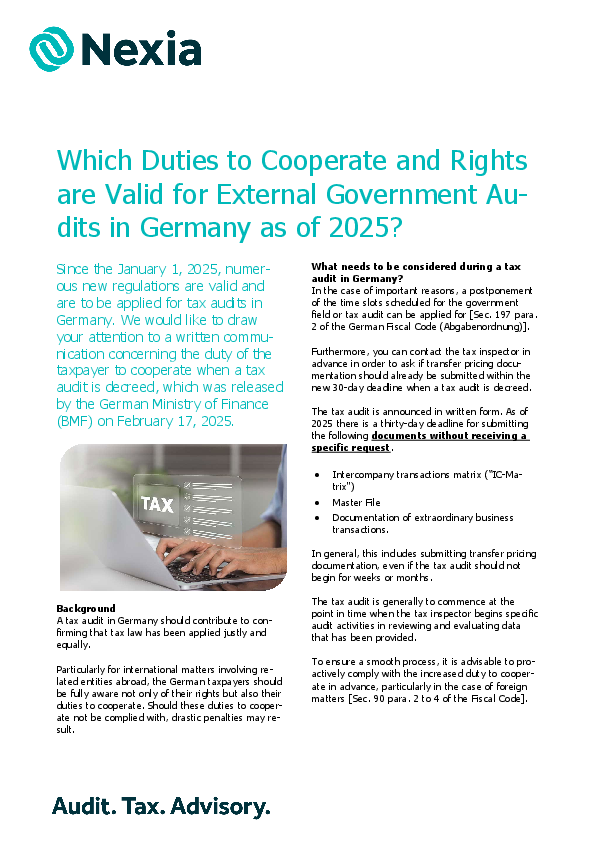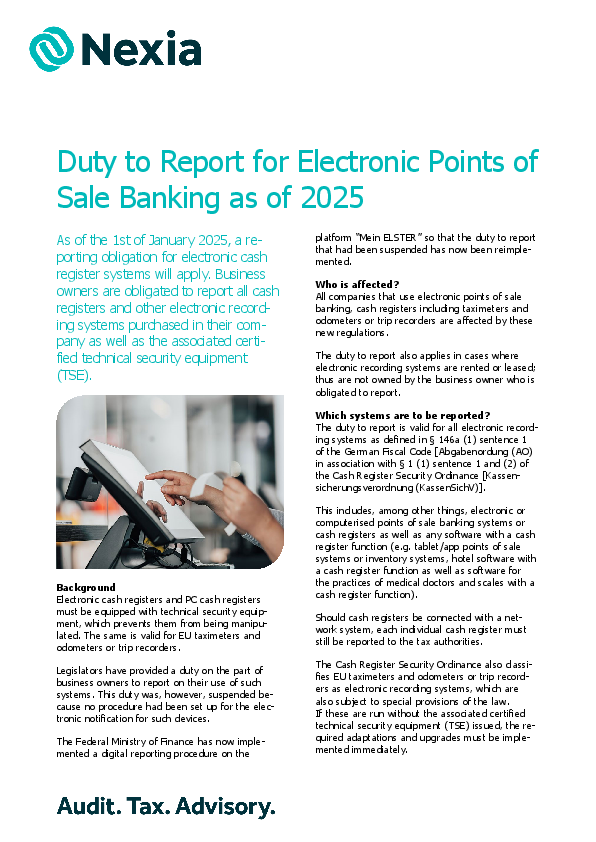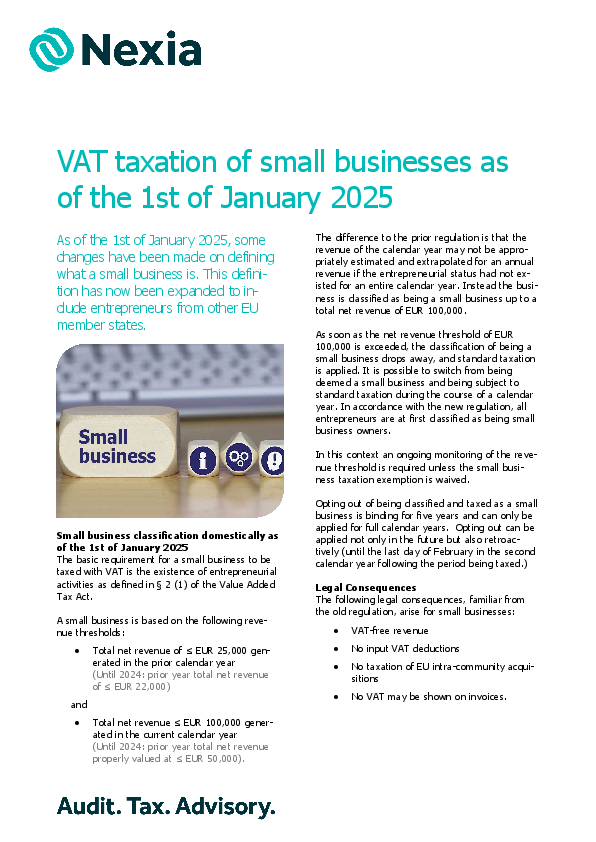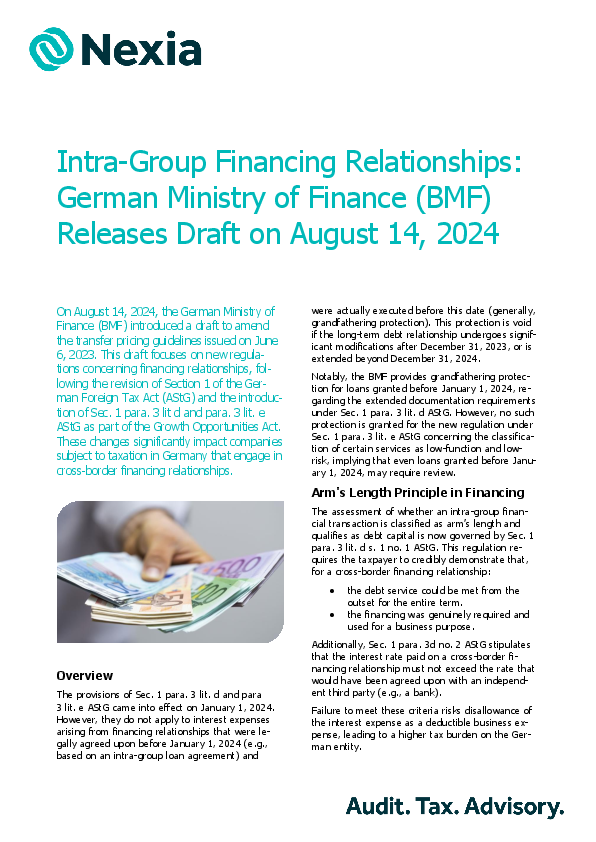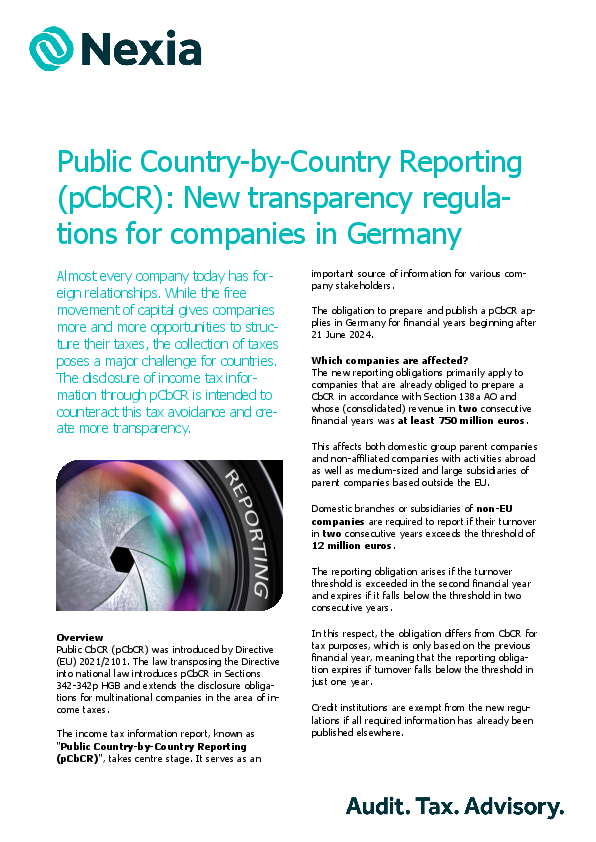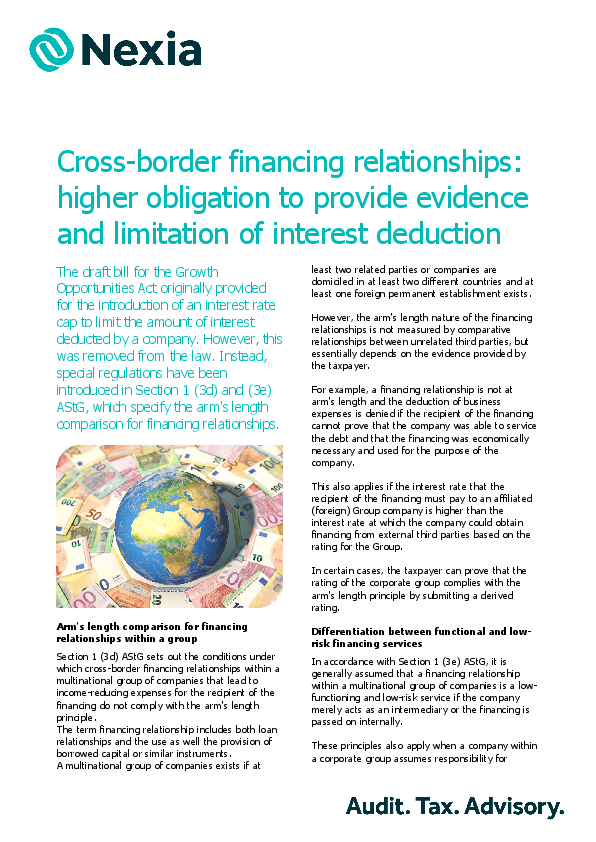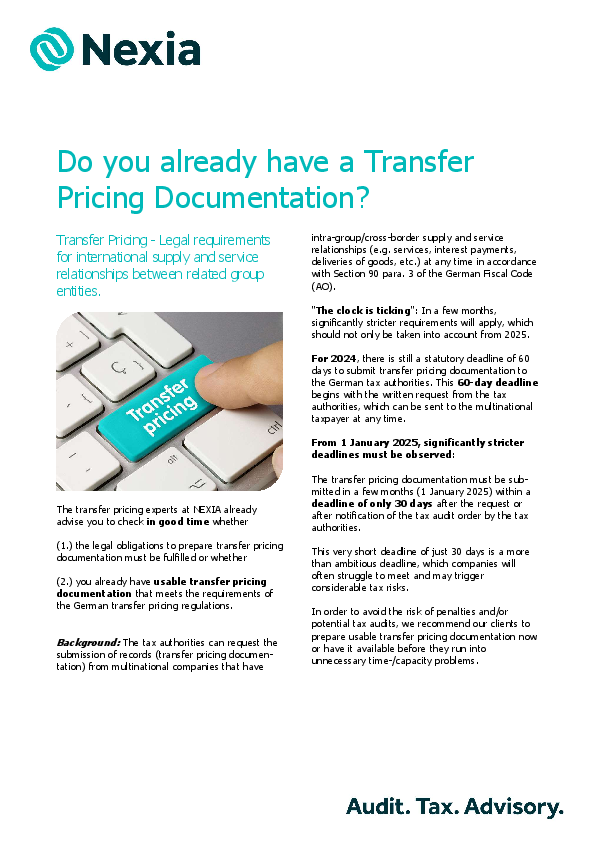Publications
From the latest tax updates to useful tips - our publications are designed to help you manage your tax affairs efficiently and stay well informed at all times. We would like to support you with our specialist knowledge and expertise. Please do not hesitate to contact us if you have any questions or concerns - we will be glad to help you.
Section 50d (3) of the German Income Tax Act [Einkommensteuergesetz (EStG)] regulates the refusal of tax relief from capital gains tax for foreign companies if they do not have any economic activities of their own and are therefore only interposed in order to obtain tax advantages. A new fact sheet on this regulation was published that we have summarised in the following overview.
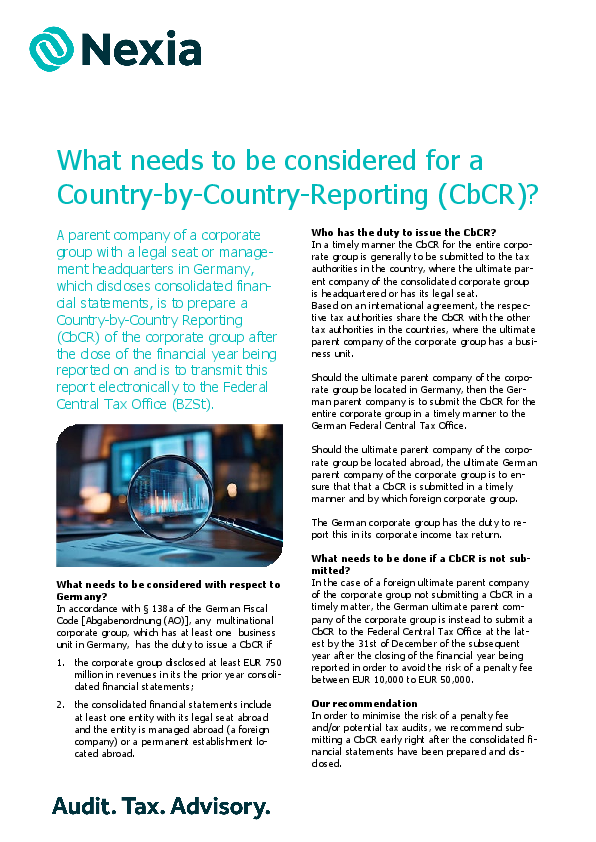
A parent company of a corporate group with a legal seat or management headquarters in Germany, which discloses consolidated financial statements, is to prepare a Country-by-Country Reporting (CbCR) of the corporate group after the close of the financial year being reported on and is to transmit this report electronically to the Federal Central Tax Office (BZSt).
Concerning external tax audits, numerous new regulations went into effect as of the 1st of January 2025. Adjustments already decided upon in 2022 are to speed up external tax audits and will particularly impact the duty of the taxpayer to cooperate.
Since the January 1, 2025, numerous new regulations are valid and are to be applied for tax audits in Germany. We would like to draw your attention to a written communication concerning the duty of the taxpayer to cooperate when a tax audit is decreed, which was released by the German Ministry of Finance (BMF) on February 17, 2025.
We are glad to assist you in founding your company in Germany. We can support you in understanding the regulatory environment, in registering your German company and in complying with tax requirements.
As an accounting and tax advisory firm operating throughout Germany, we offer excellent services to our medium-sized clients operating domestically and internationally.
Section 3 of the Minimum Tax Act [Mindeststeuergesetz (MinStG)] regulates the legal requirements for Enterprise Group reportings and determines which information must be reported and which duties are to be fulfilled in Germany.
As of the 1st of January 2025, a reporting obligation for electronic cash register systems will apply. Business owners are obligated to report all cash registers and other electronic recording systems purchased in their company as well as the associated certified technical security equipment (TSE).
As of the 1st of January 2025, some changes have been made on defining what a small business is. This definition has now been expanded to include entrepreneurs from other EU member states.
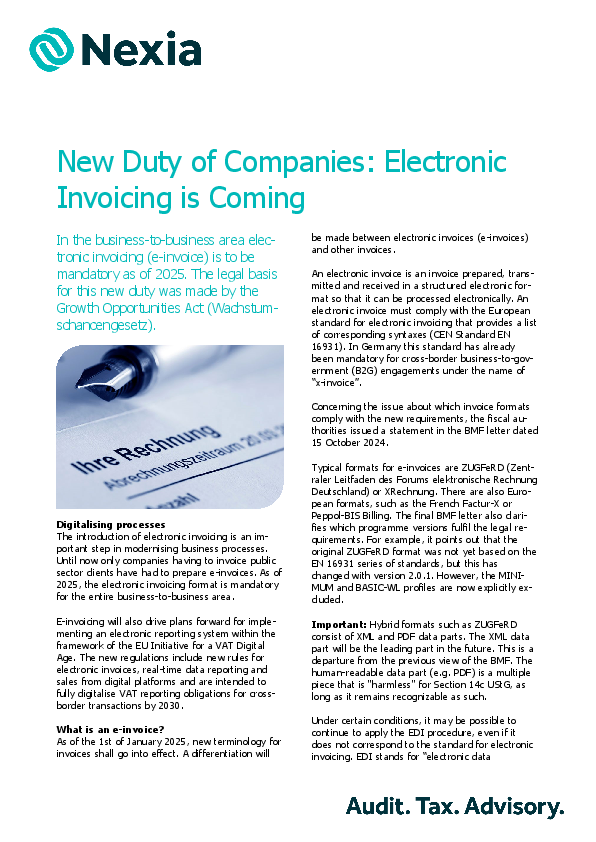
In the business-to-business area elec-tronic invoicing (e-invoice) is to be mandatory as of 2025. The legal basis for this new duty was made by the Growth Opportunities Act (Wachstumschancengesetz).
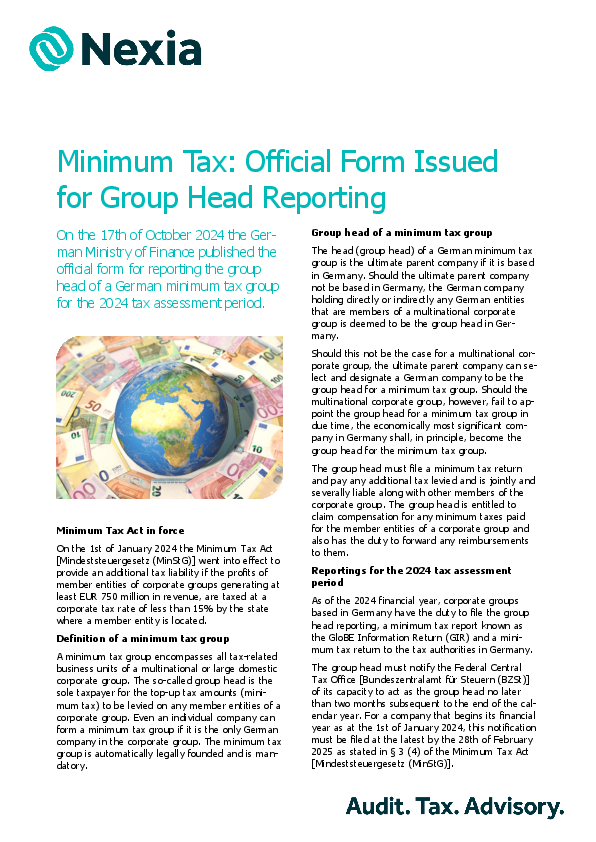
On the 17th of October 2024 the German Ministry of Finance published the official form for reporting the group head of a German minimum tax group for the 2024 tax assessment period.
On August 14, 2024, the German Ministry of Finance (BMF) introduced a draft to amend the transfer pricing guidelines issued on June 6, 2023. This draft focuses on new regulations concerning financing relationships, following the revision of Section 1 of the German Foreign Tax Act (AStG) and the introduction of Sec. 1 para. 3 lit d and para. 3 lit. e AStG as part of the Growth Opportunities Act. These changes significantly impact companies subject to taxation in Germany that engage in cross-border financing relationships.
Almost every company today has foreign relationships. While the free movement of capital gives companies more and more opportunities to structure their taxes, the collection of taxes poses a major challenge for countries. The disclosure of income tax information through pCbCR is intended to counteract this tax avoidance and create more transparency.
The draft bill for the Growth Opportunities Act originally provided for the introduction of an interest rate cap to limit the amount of interest deducted by a company. However, this was removed from the law. Instead, special regulations have been introduced in Section 1 (3d) and (3e) AStG, which specify the arm's length comparison for financing relationships.
As part of the Business Europe Framework for Income Taxation (“BEFIT”) package, published on September 12th, 2023, a proposal for issuing a European Directive, aimed at harmonising the EU regulatory framework on transfer pricing (“TP Directive”), was issued by the European Commission.
Transfer Pricing - Legal requirements for international supply and service relationships between related group entities.
Do you have any questions or do you need support? Please contact your local contact or get in touch with us. Our colleagues are glad to help you with any questions that may arise.








 LinkedIn
LinkedIn Xing
Xing Email
Email